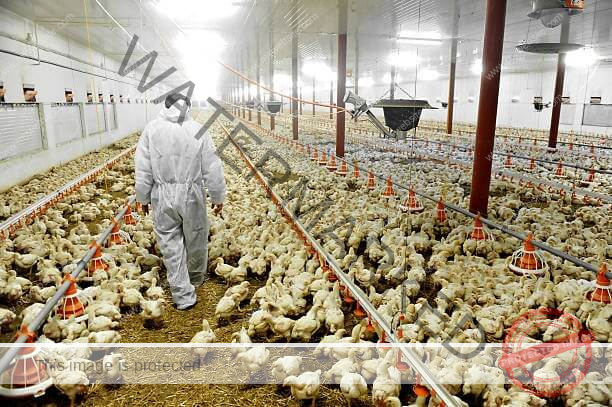Poultry farming has emerged as one of the most lucrative ventures in Nigeria today, with a thriving market for poultry products including meat, eggs, and dung. The success of this venture largely hinges on understanding the initial investment required for various aspects of poultry farming, particularly focusing on broilers and layers. In this guide, we’ll explore the essential costs associated with launching a profitable poultry farming business in Nigeria.
Cost of Starting a Poultry Business in Nigeria
1. Land
Acquiring suitable land is a fundamental step in establishing a poultry farm. Depending on your location and the scale of your operation, the cost of land can range from N300,000 to N3 million per plot in certain parts of Nigeria.
2. Housing Construction
Next, you’ll need to invest in appropriate housing for the birds. The type of housing depends on the rearing system you choose. While a free-range system is the most economical, floor or cage systems are recommended for better results. Building a poultry house or using bird cages for 500 birds can cost between N300,000 and N500,000.
3. Poultry Equipment
Various pieces of equipment are indispensable for running a profitable poultry farm, including chick boxes, coops, crates, drinkers, egg scale, egg tray, egg washer, feeders, fly tray, heaters or brooders, incubators, laying nests, and ventilation fans. For commercial farms, budget between N600,000 and N800,000, while smaller farms can allocate between N60,000 and N210,000 for equipment.
4. Vaccination and Medication Costs
Prioritizing bird health through vaccination is crucial to minimizing mortality rates on your farm. Budget between N200,000 and N260,000 for vaccination and medication for a farm with 500 chicks, though prices may be negotiable with your chosen veterinarian.
5. Feeding
Feeding is a non-negotiable expense in poultry farming. You can choose to formulate your own feed or purchase it from established vendors. Feeding 500 birds for a month can cost between N150,000 and N300,000. For layers, budget for feeding over an 18-month period, which could range from N2.7 million to N5.4 million.
6. Purchase of Chicks
Chicks are the cornerstone of your poultry farming venture. Day-old chicks currently range from N500 to N1000, while point-of-lay birds can be acquired for between N2,500 and N3,000.
How to Start the Poultry Farming Business in Nigeria
1. Study the Market
Begin by conducting a thorough feasibility study to understand market dynamics, capital requirements, target customer base, and competition. This analysis will guide your business strategy.
2. Write a Business Plan
Create a comprehensive business plan that outlines your goals, strategies, and financial projections. A well-prepared business plan serves as a roadmap for your venture and can attract potential investors.
3. Seek Reputable Suppliers
Identify reliable suppliers for healthy stock and quality feed. Ensuring the well-being of your birds and the quality of their nutrition is paramount to the success of your poultry farming venture.
4. Raise Capital
Secure the necessary funds for land acquisition, equipment, and initial operating expenses. Options include personal savings, loans, grants, or contributions from friends and family.
5. Gather Knowledge
Immerse yourself in the intricacies of poultry farming by seeking advice from experienced farmers. Learn from their successes and challenges to equip yourself with the expertise needed to run a successful poultry farm.
By following these steps and allocating the appropriate resources, you can embark on a promising journey into the thriving world of poultry farming in Nigeria.

